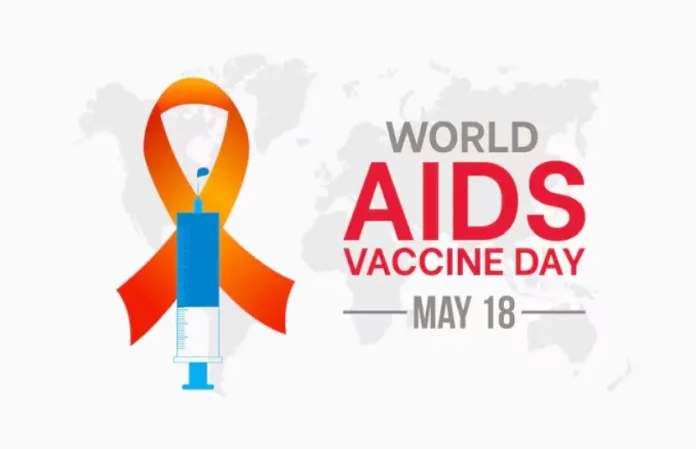
World AIDS Vaccine Day, observed on 18th May each year, is a significant event that highlights the ongoing quest for an effective HIV vaccine. This day honors the countless scientists, researchers, and volunteers dedicated to developing a vaccine to prevent HIV/ AIDS. Let’s explore deeper into the importance of World AIDS Vaccine Day 2024, the progress made, and what the future holds.
The Origin and Significance of World AIDS Vaccine Day
World AIDS Vaccine Day was first observed on 18th May 1998, following a speech by then-U.S. President Bill Clinton at Morgan State University on 18th May 1997. President Clinton emphasized the need for an HIV vaccine to eradicate the epidemic. The day serves as a reminder of the ongoing need for a vaccine and the importance of continued research and development.
Why is World AIDS Vaccine Day Important?
- Raising Awareness: The day is crucial for raising public awareness about the need for an HIV vaccine.
- Recognizing Efforts: It acknowledges the hard work of scientists, healthcare professionals, and volunteers in the fight against HIV/ AIDS.
- Encouraging Support: The day motivates governments, organizations, and individuals to support HIV vaccine research through funding and advocacy.
The State of HIV/ AIDS Globally
HIV/ AIDS remains a global health crisis, with millions affected worldwide. According to UNAIDS, approximately 38 million people were living with HIV at the end of 2020. Despite significant advancements in treatment and prevention, a vaccine is essential to eliminate the disease.
Current Challenges in HIV Vaccine Development
- Virus Variability: HIV’s high mutation rate makes it difficult to develop a one-size-fits-all vaccine.
- Complex Immune Response: HIV targets the immune system, complicating the development of an effective vaccine.
- Long Development Time: Vaccine development is a lengthy process requiring rigorous testing to ensure safety and efficacy.
Progress in HIV Vaccine Research
Despite the challenges, there has been remarkable progress in HIV vaccine research. Several promising candidates are currently in various stages of clinical trials. Here are some notable advancements:
Recent Breakthroughs
- mRNA Technology: Leveraging mRNA technology, used successfully in COVID-19 vaccines, offers new hope for HIV vaccine development.
- Broadly Neutralizing Antibodies (bNAbs): Research on bNAbs shows potential in targeting multiple HIV strains.
- Novel Vaccine Platforms: Innovative platforms like vector-based vaccines and protein subunit vaccines are under investigation.
Key Players in HIV Vaccine Research
- International AIDS Vaccine Initiative (IAVI): IAVI is a global organization dedicated to accelerating the development of vaccines to prevent HIV infection.
- National Institutes of Health (NIH): NIH’s extensive research and funding play a crucial role in advancing HIV vaccine research.
- Pharmaceutical Companies: Companies like Johnson & Johnson and Moderna actively develop and test HIV vaccines.
The Role of India in HIV Vaccine Research
India plays a significant role in the global fight against HIV/ AIDS. India is at the forefront of research and development with its robust pharmaceutical industry and skilled scientific community.
Indian Contributions
- Affordable Medication: Indian pharmaceutical companies produce affordable antiretroviral drugs, making treatment accessible globally.
- Collaborative Research: Indian institutions collaborate with international organizations to advance HIV vaccine research.
- Community Engagement: Indian NGOs and health organizations actively participate in awareness campaigns and clinical trials.
The Road Ahead: Challenges and Opportunities
The journey towards an effective HIV vaccine is fraught with challenges, but it also presents numerous opportunities.
Overcoming Obstacles
- Funding and Resources: Securing adequate funding and resources is crucial for sustained research efforts.
- Public Participation: Encouraging community participation in clinical trials is vital for successful vaccine development.
- Global Collaboration: Strengthening international collaborations can accelerate progress and share knowledge and expertise.
The Promise of a Vaccine
An effective HIV vaccine would revolutionize the fight against AIDS, offering hope for a future free of the epidemic. It would:
- Prevent New Infections: A vaccine could significantly reduce the number of new HIV infections worldwide.
- Reduce Healthcare Costs: Lower infection rates would decrease the burden on healthcare systems.
- Enhance Quality of Life: Preventing HIV would improve the quality of life for millions of people at risk of infection.
Conclusion: A Call to Action
World AIDS Vaccine Day 2024 is a poignant reminder of the collective effort required to combat HIV/ AIDS. By supporting research, raising awareness, and fostering global collaboration, we can move closer to finding an effective HIV vaccine. Let us honor the dedication of researchers, healthcare workers, and volunteers by continuing to support this crucial cause. Together, we can pave the way for a healthier, HIV-free future.
Stay Tuned to our Website Freshersnow.com for more interesting blog posts and educational content.
| You Can Also Check | |
| Current Affairs | |



